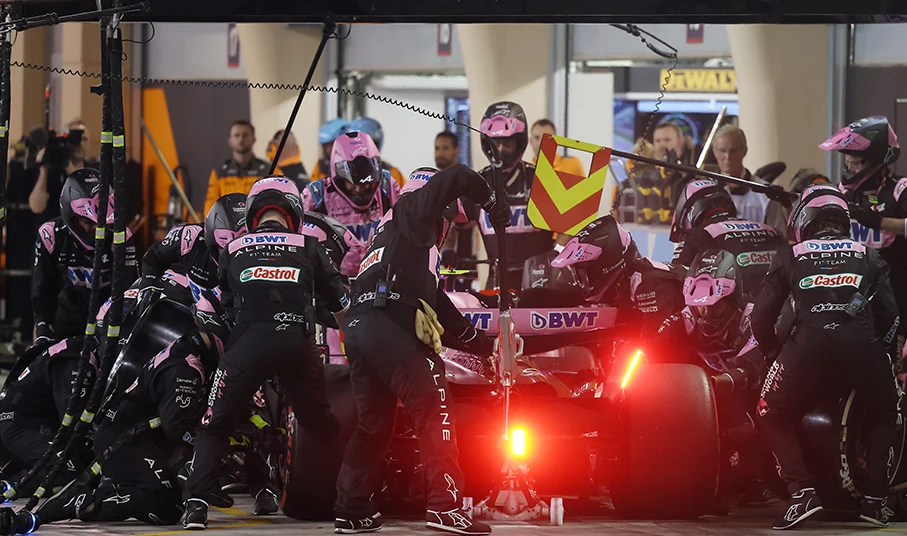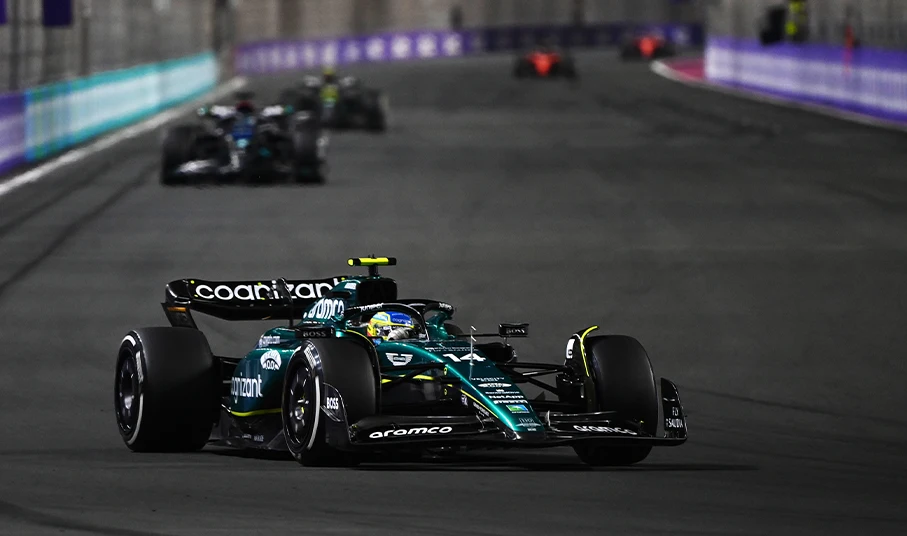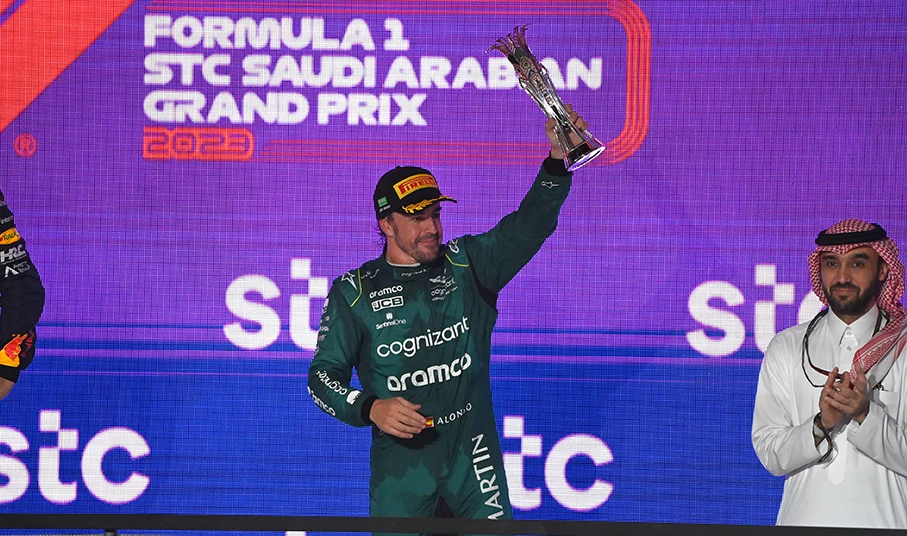Is The FIA's 2023 Strictness Good for F1

Another F1 season means it's time for another conversation about the FIA's rules after the governing body has gotten tough on keeping drivers and teams in check in 2023. After inconsistencies with track limits, forcing drivers off the road, and effectively throwing the rulebook out the window in the 2021 season finale, I can't tell whether to rejoice or cry at the FIA's latest management methods.
If you haven't kept a close eye on F1 in 2023, let me catch you up. Esteban Ocon suffered a weekend to forget in the season-opening Bahrain Grand Prix. The Frenchman staggeringly picked up three separate time penalties during the race, totaling 20 seconds, before eventually retiring from the race to end his misery.
Two weeks later, Fernando Alonso looked like he might lose his well-earned podium in Saudi Arabia. Then, to less headline-grabbing extents, the stewards also waved the black and white flag at Lewis Hamilton for weaving in defense on the pit straight and deleted Logan Sargeant's Q2-worthy lap time in Saudi Arabia's Qualifying.

The strictness started with the Ocon's car placement on Bahrain's starting grid. Although initially believing he inched too far forward, which would be an unfair advantage, the Alpine driver was slightly to the right of his grid box, netting no discernable benefits. With how low the drivers sit in a modern-day F1 car, it's no surprise Ocon didn't know he wasn't within the white lines, yet the FIA handed him a five-second penalty for his 'offense.'
In a sport where an extra inch down might make all the difference on the run to the first corner, I'm all in favor of stopping a driver from being too far forwards. However, losing five seconds for being a little left or right of a painted box defies common sense and is disproportionate to an offense where the driver gains no advantage.
When serving the penalty in his first pit stop, F1's rules forbid the mechanics from working on his car for, as you might expect, five seconds. Alpine jumped the gun at 4.6 seconds, netting Ocon a further 10-second penalty. Then, to complete a nightmare Sunday, an additional five-second penalty followed when the FIA found Ocon guilty of speeding in the pit lane — by 0.1 mph.

At the time, I found the whole ordeal hilarious for nearing comedy levels more often found in 'The Office' with the ever-increasing levels of ridiculousness. But then I found it frustrating by the Saudi Arabian Grand Prix's conclusion after Alonso had an almost play-by-play repeat of the same crimes, albeit without the speeding penalty, which is the one I do support.
In Alonso's case, he was a little too left of the grid box, and the stewards judged that the Aston Martin mechanic operating the rear jack made contact with the AMR23 within five seconds. Replays showed this was true, but he merely placed the jack in place and didn't 'work' on the car. With Alonso's podium under threat, Aston Martin successfully argued that there's precedent for drivers not being penalized for such innocuous errors, and the stewards rescinded their decision — but only long after the checkered flag.
Ocon and Alonso's troubles stem from a new-to-2023 rule: Article 48.1 (c) of the FIA's sporting regulations detail where the car must be at the race start. The wording of 48.1 (c) states that a competitor will breach the rules should their car have: "Any part of the contact patch of its front tires outside of the lines (front and sides) at the time of the start signal."

With two drivers failing that test, their two teams then fell foul of the five-second 'no work' rule. I admit you can argue the teams hoped to minimize the disruption to their race, but F1 is a competition, so I understand wanting to hit five seconds exactly, rather than a cautious 5.5., or 6 seconds.
What I can't understand is how humanity's most technologically-advanced sport doesn't have something as simple as an independent five-second red-to-greed LED timer after the pit stop that would prevent the situation we've seen twice in 2023.
Had Alonso's Aston Martin team not argued their case as well as they did, he and Ocon would've lost 15 seconds each, a gigantic margin in F1, because they started the race an inch too far left or right. To add to the problem, failing to count to five correctly and losing another 10 seconds is farcical in both concept and the punishment.

Although the rightful podium finisher eventually remained on Saudi's Sunday night, the FIA's delay in investigating Alonso's pit stop doesn't help my patience with them. Having fans leave the circuit or turn off their televisions and not knowing the race's result is unacceptable, no matter the FIA's intentions.
Everyone wants to see the world's best drivers race the world's fastest cars with minimal external influence. That is a good thing for the sport. If the FIA execute the rules to the letter of the law, which I'm in favor of, the rules must be sensible. Sensible means penalties matching offenses and timely decisions when those offenses occur. Bahrain and Saudi Arabia's Sunday races show they're anything but.